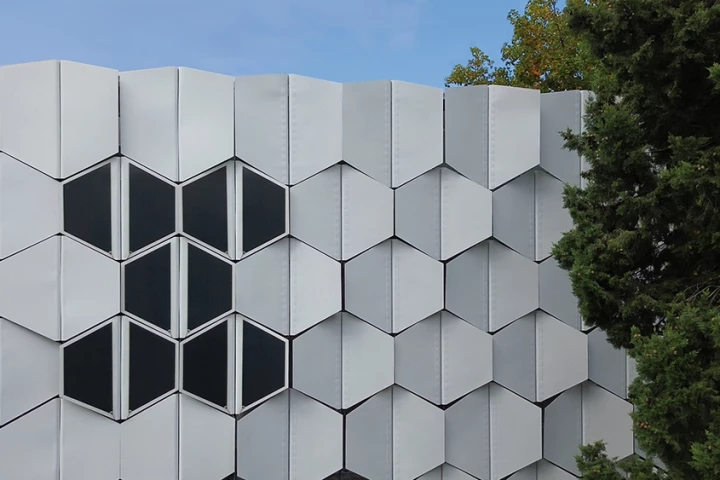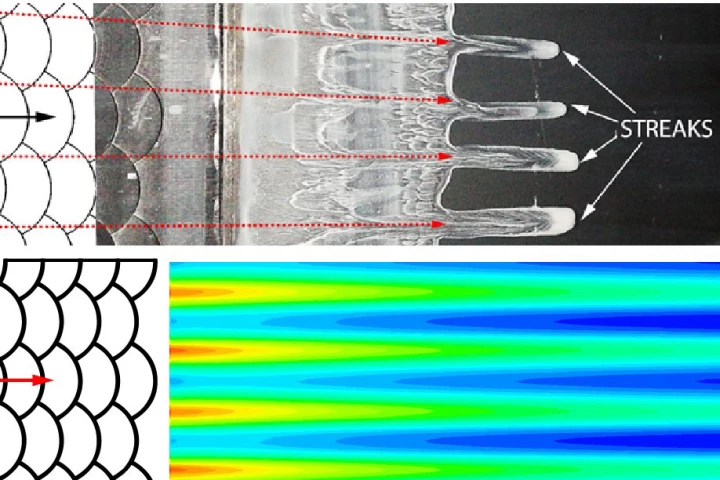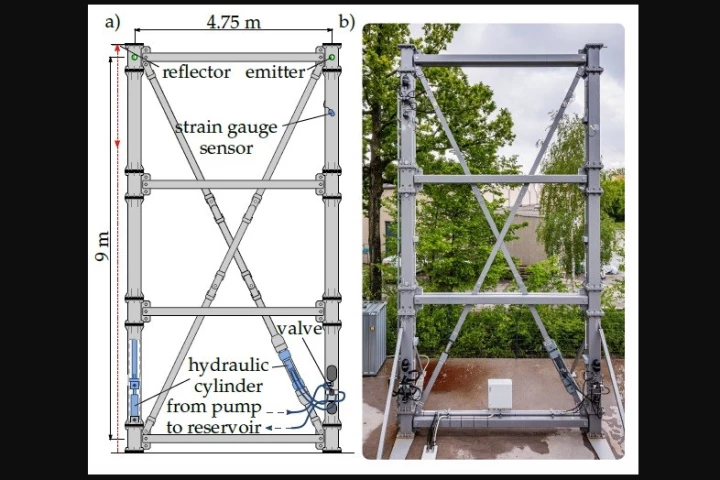University of Stuttgart
-
Nobody likes buildings that are too hot in the summer or too cold in the winter. That's where the FlectoLine facade comes in, as it uses two bio-inspired mechanisms to regulate how much solar thermal energy gets through a building's windows.
-
Pine cones are pretty smart for things with no brains, enough so that scientists have copied them to create a unique window shading system. The setup blocks sunlight in the summer and lets it through in the winter, without using any electricity.
-
A new study has delved into the tardigrade's ability to endure freezing temperatures, a state known as cryobiosis, and shown for the first time that they are able to stop their internal clocks to halt the aging process in such conditions.
-
Although many cyclists utilize custom insoles in their shoes, they typically just use one-size-and-shape-fits-all grips on their handlebars. German startup Personomic is out to change that, with grips that are custom-made for individual users' hands.
-
Scientists in Europe researching aerodynamic forces have opened up some interesting new avenues of study inspired by fish scales, which could eventually lead to drag reductions in aerial vehicles of as much as 25 percent.
-
An Australian/German team has developed the world's smallest imaging device, at the thickness of a human hair. It's capable of traveling down the blood vessels of mice, offering unprecedented abilities to 3D-scan the body at microscopic resolutions.
-
Even the smallest of deformations in structures such as buildings or bridges can lead to cracks, so the sooner that they're noticed, the better. A new laser-based system is designed to do just that, quicker and cheaper than ever before.
-
Moisture is usually bad news for timber, but a group of researchers in Germany is investigating how it can actually be harnessed for more efficient construction, manifesting in a magnificent tower made up of timber pieces that twisted themselves into shape.
-
A new system from the University of Stuttgart explores how drones can give rise to a novel form of intelligent architecture, demonstrated through an adaptive canopy that changes its configuration as the sun moves through the sky.
-
Researchers at the Max Planck Institute in Germany have created a system that can move and manipulate particles using holograms made of sound
-
German researchers have developed a complex lens system no bigger than a grain of salt that fits inside a syringe. The imaging tool could make for not just more productive medical imaging, but tiny cameras for everything from drones to slimmer smartphones.
-
Smartglasses aren't unlike smartphones, in that you don't want just anyone picking up yours and using it. Conventional passwords are one way to go, but scientists have developed an alternative that doesn't involve memorizing anything – you do, however, have to let the glasses buzz your skull.
Load More











